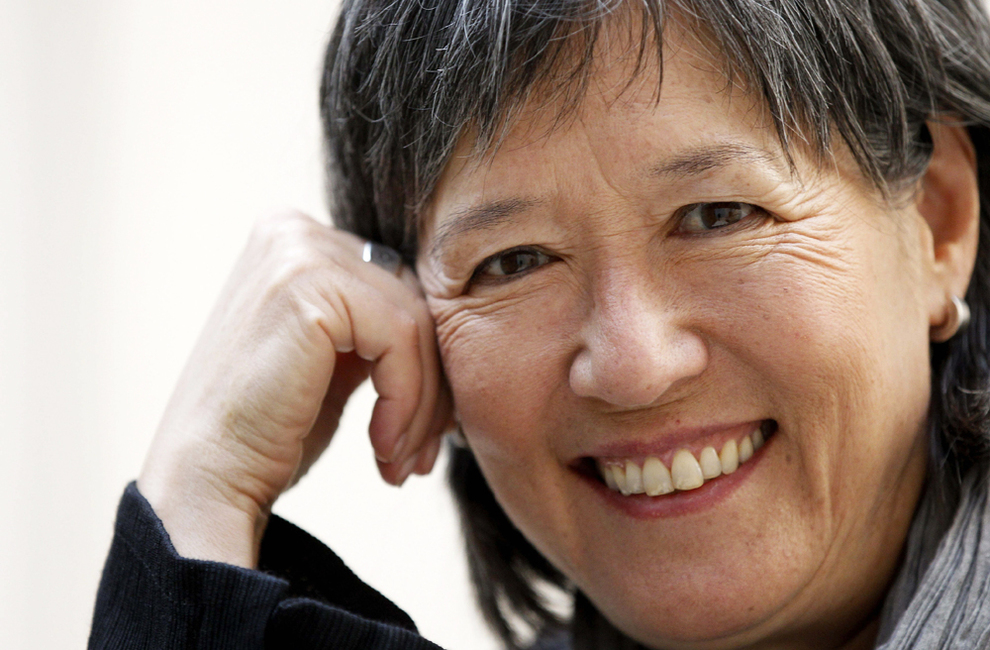A brief summation of the chapter: Both Akiko and Jane wake up in the hospital, Akiko from the rape and beating received by "John", and Jane from the severe blow to the head in the meat factory. Jane has a miscarriage of her stillborn baby, having died days ago. When she calls Sloan, he blows up and they become estranged, while Akiko conceives a child. Jane is fired from the show but retains enough of her slaughterhouse tape to create a documentary about the meat industry and treatment of animals. Akiko gathers the strength to leave John, and leaves to go to America where she visits Lara and Dyann, and the Beaudroux family. Jane gets back together with Sloan as Bunny's distribution of the documentary tapes sparks worldwide interest and debate. She gets closure with Suzie flowers as Akiko's child grows while she lives with Lara and Dyann, and everything appears to be resolved, although ending on a somber note with Jane reminiscing over a peak incidence age for "DES daughters".
1) "She studied the woman's battered face: the lip was split and started to heal; the fading bleed of yellow, green and blue skin that ringed both her eyes told of older battles, as did the thin white scar above her brow." This is probably the least gut wrenching description of the abuse that occurs throughout the book. Violence and sex are both extremely sensually described in the book. Did it make you uncomfortable, or was the method of description justified?
2) “There is another young husband waiting here, anxiously pacing up and down. His wife is having a baby. My heart is heavy with grief and envy. Promise me that the next time the anxious young husband will be me.” These are the last delivered words of good ol' John Wayno, written in the letter given to Akiko in the hospital. What a gigantic, monstrous asshole. The novel has a very complicated relationship with gender portrayal. Is John, in the end, anywhere near a sympathetic character, and could he have been developed better? Also, What’s the significance that Jane is unable to carry a boy to term, and Akiko is completely sure that her developing child is a girl?
3) When Jane learned of how Akiko was affected by My American Wife, she said that “Akiko’s fax threw me for a loop… up until now I’d never really imagined my audience before… Now it hit me: what an arrogant and chauvinistic attitude this was. While I’d been worrying about the well-being of the American women I filmed as subjects, suddenly here was the audience, embodied in Akiko, with a name and a valuable identity” Both the American and Japanese characters in the book show a perturbing degree of ethnocentric and concern for only the morals and happenings in this country. Is this a natural thing? A Healthy one? How does it affect the actions of the characters in the novel?
4) "Like one of those science documentaries on television. I could see it up close in my mind from the fertilization right through the implantation, the little blastocyst burrowing deep into my uterine tissue. Well, it's going to take a while longer to really settle in there, but to all intents and purposes, I'm pregnant..." It's appropriate that fertilization is described so viscerally in a novel that holds such stock in the importance of fertility. In the end, is the driving need to be fertile and conceive a mostly natural one, or one that is ingrained in us by society?

5) In what is perhaps a slightly heavy-handed bit of foreshadowing, before the epilogue, in the church with Jane, Sloan, and Mrs. Helen, the choir sings “It Remains to Be Seen What He Can Do For Me”, and in the remaining section of the book pretty much everything goes right and peachy for Akiko and Jane. Jane gets with Sloan, Akiko goes and visits families from My American Wife and goes on wonderful adventures on the Chicken Bone Express (WHICH IS TOTALLY NOT A THING), settling down to watch her baby grow with the lesbian couple from the show, Jane’s documentary is a smash, Gale gets his just desserts, BEEF EX is implicated in the whole affair and a firestorm starts about their involvement, John Wayno is demoted, as is Kenji, and Suzie Flowers calls saying that she absolutely adored the show, sound effects and all, and that her husband got back with her. In the last page of the book, Jane says “I don’t think I can change my future simply by writing a happy ending. That’s too easy and not interesting.”
Did Ruth Ozeki write an overly happy ending for her? Is the epilogue a realistic and satisfying way to end the book?
No comments:
Post a Comment